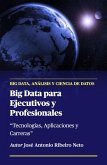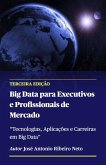In manufacturing, Industrial IoT (IIoT) transforms operations through smart factories, predictive maintenance, and real-time supply chain visibility, enhancing efficiency and decision-making, though cybersecurity risks and workforce readiness remain critical concerns. In smart cities, IoT solutions for traffic management and waste reduction improve urban infrastructure, reduce congestion, and enhance sustainability, but face hurdles such as data privacy, high costs, and the need for public-private partnerships. In retail, IoT technologies like smart shelves and beacons enhance inventory management, personalize customer experiences, and improve operational efficiency, while addressing challenges like data privacy, integration complexity, and implementation costs.
Across these sectors, IoT is driving innovation by integrating with emerging technologies such as artificial intelligence (AI), 5G, blockchain, and augmented reality (AR), enabling predictive analytics, real-time decision-making, and immersive experiences. However, the adoption of IoT is not without challenges, including cybersecurity risks, high initial costs, interoperability issues, and ethical concerns related to data privacy and environmental impact. To fully realize the potential of IoT, stakeholders must prioritize human-centered design, robust security measures, sustainability, and collaboration across industries and governments. By addressing these challenges and embracing IoT's transformative capabilities, industries can create smarter, more efficient, and sustainable ecosystems that enhance quality of life and drive economic growth.
Dieser Download kann aus rechtlichen Gründen nur mit Rechnungsadresse in A, B, CY, CZ, D, DK, EW, E, FIN, F, GR, H, IRL, I, LT, L, LR, M, NL, PL, P, R, S, SLO, SK ausgeliefert werden.









